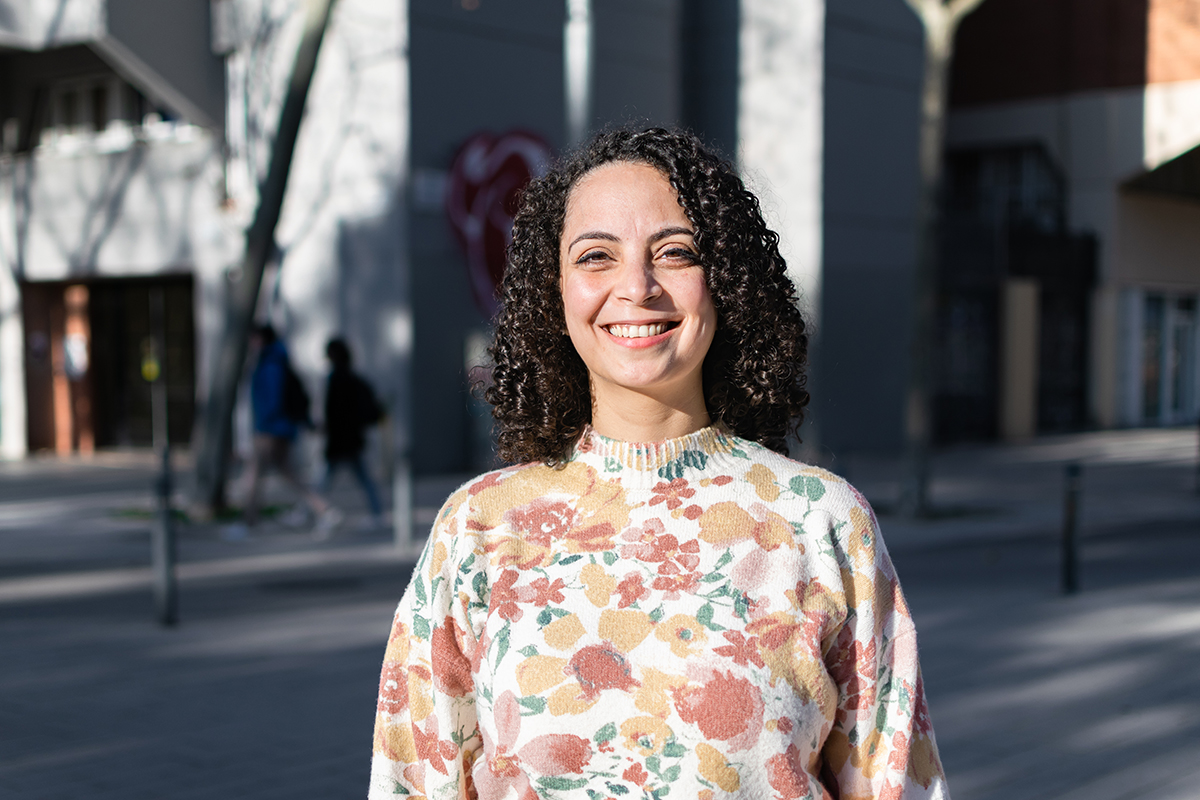
14 Mar We interview Sara Eltokhy
Sara Eltokhy is a PHD student through the RMIT European Doctoral Innovators (REDI) Programme, funded through the European Union’s Marie Curie COFUND Grant Programme. The project is led by RMIT Europe, the European hub of the Royal Melbourne Institute of Technology (RMIT University) and coordinated by UIC Barcelona School of Architecture professor Dr. Carmen Mendoza-Arroyo. Sara Eltokhy shares the research she is currently developing in UIC Barcelona School of Architecture about the urban inclusion policies in European cities and the crucial role they have for refugee woman.
What are you currently working on in your PhD?
My PhD project focuses on urban inclusion policies in European cities. It addresses the knowledge gap for city planners and policymakers in understanding the everyday reality of refugee women in urban areas. This is particularly crucial to analyse especially as most European countries are being confronted with increasing diversity in ethnicity, language, religion and identity. This understanding is essential to incorporate in urban planning policies to guarantee equal access to cities for all.
What are the challenges that refugee women face in European cities?
he process of resettlement can be extremely challenging and stressful for women. While refugee women face similar challenges as men post-displacement such as the lack of knowledge of the environment, the language and the cultural norms, women face additional challenges sometimes due to gender and racial discrimination.
Refugee women who arrive in Europe usually have lower education levels with little labour market experience. Even if they have acquired skills in their country of origin such as academic qualifications, they may not be recognised across countries leading to an economically disadvantaged position. Consequently, they face pressure to provide for their families while at the same time maintaining their gender roles of caring for children and the elderly.
Cities of the future should be gender-inclusive where women have the same rights to the city as men".
How could European cities do better in improving the reality of refugee women?
The first step in my opinion is to have a detailed and comprehensive understanding of the complex and gender-related needs of refugee women. Then a holistic, tailored approach, putting women’s voices and experiences in its centre, should be applied to address their needs and promote urban inclusion.
How do you think the european cities of the future will be in relation to gender?
Over the last decades, some cities have already made progress in addressing gender issues such as Barcelona, however much more is still needed. Cities of the future should be gender-inclusive where women have the same rights to the city as men. Cities should be designed to provide women and minority groups with the same access to public spaces without fear of violence or discrimination, the same rights for housing and services, the same opportunities and the same level of participation in decision-making processes.



